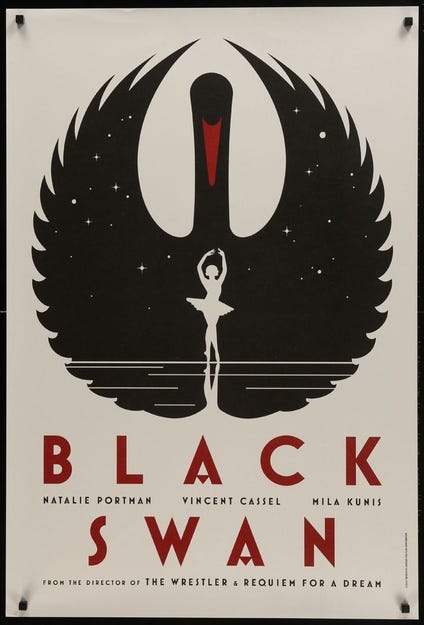Happy 2023, Let's Read!
And let's read whatever we want.
Happy 2023! The Middlebrow won’t link to the already forgotten kerfuffle, but somebody on Twitter posted a personal reading list that drew scorn from hedge fund manager and “black swan” guru Nassim Nicholas Taleb that led to a brief shark frenzy against the guy and his books.
I’m singling out Taleb here because he started it. While his target has a pretty big following, Taleb is a much more influential fellow, online and in the real world. He knew he could whip up a storm of snark against some guy and his books and seems to have acted from spite, malice or sheer snobbery. Taleb’ central conceit is that the guy with his books is some sort of intellectual fraud elsewhere in life. Maybe. The Middlebrow has long found Taleb interesting, but his “smarter than thou” pose is also a bit wearisome and maybe no deserved. As a public intellectual and money manager, Taleb is as much a product of marketing as anybody. That’s not meant as an insult but let’s not pretend that you can raise more than $10 billion from institutional investors for a strategy designed to lose money most of the time without a little sales panache. He could stand to be a bit gentler with others.
Of course, Taleb’s “smartest guy in the room” pose on Twitter is part of his marketing. By bullying some Twitter intellectual, Taleb burnished his professional image as a rigorous intellectual in the same way that Mike Tyson beating up Mitch Green outside the ring fed into “The Baddest Man on the planet” mythos. Well played, Nelson.
So, what did Taleb’s target do? He resolved to read a book a week and then listed them. His list included works by Albert Camus, Fyodor Dostoyevsky, Isaac Asimov, George Orwell and others. It was a Middlebrow list and catnip for snide commentary. Probably the best criticism is that some of the books included, like The Brothers Karamazov are not going to be “read in a week” projects for people who are not confined to prisons or hospitals. The notion of reading a novel like that in such a short span and getting anything meaningful from it recalls Woody Allen’s joke about taking a speed reading course and using it to read War and Peace: “It involves Russia.”
But the real ire was trained on the books deemed “high school reading.” These included Asimov’s Foundation novels and Orwell’s 1984. Having attended a decidedly “liberal arts” focused high school in the early 1990s, I encountered a diverse reading list that included the standard (yes, 1984) but also some surprises (did anybody else read Even Cowgirls Get the Blues by Tom Robbins?)
A few things about high school books: when you are assigned them in high school, you are generally not ready for them. That is why they show up again in college and throughout life. Everybody reads The Great Gatsby in high school, but perspective about Nick, Jay and the Buchanans is bound to change throughout life. They seemed mysterious to me as a teen reader, romantic in my 20s, and as living moral hazards now.
Even a book explicitly about young people like A Catcher in the Rye benefits from rereading later in life because the way your 15 year old self relates to Holden Caulfield had best change over time. Also, you might need better than working knowledge of the novel as the explanation for some heinous act:
Were Asimov around to be queried, The Middlebrow believes that the science fiction grandmaster would readily admit that deep psychological insight and poetic prose were not his strong points. He grew up writing for pulp magazines during and after World War II, where big ideas dazzled more than prose sparkled. The inclusion of The Foundation Trilogy on the reading list probably earned the most derision as a lot of people do look back on it as a book to be outgrown. Ironically, the story of novels, which takes Edward Gibbon’s The History of the Decline and Fall of the Roman Empire and projects it far into the future, is that there are limits too. mathematical and scientific knowledge that forever doom humanity to conditions of risk and uncertainty. That is the broad premise behind Taleb’s work as both an academic and asset manager. Big ideas get big for reasons, you know.
It would be easy to go on debating the merits of individual books from this list and others. The Middlebrow can justify people reading just about anything — which is kind of the point. Books compete for our attention with so many other things beyond family, health and work. New books have to compete for readers with every book ever published before and even that is just a grain in the mountain of offerings that confront us in an attention-driven economy. Look around. That anybody is reading anything at all is something that should make every book lover smile.
I am fortunate that a lot of people ask me for novels to read. I consider the question a huge compliment. My go-to answers, lately, have been The Netanyahus by Joshua Cohen and Fleishman is in Trouble by Taffy Brodesser-Akner. I will soon be adding the forthcoming novel, The Shards by Bret Easton Ellis to the list, but you’ll have to stick with The Middlebrow to learn more. It’s out January 17th.
Happy new year, friends. Stay reading.
